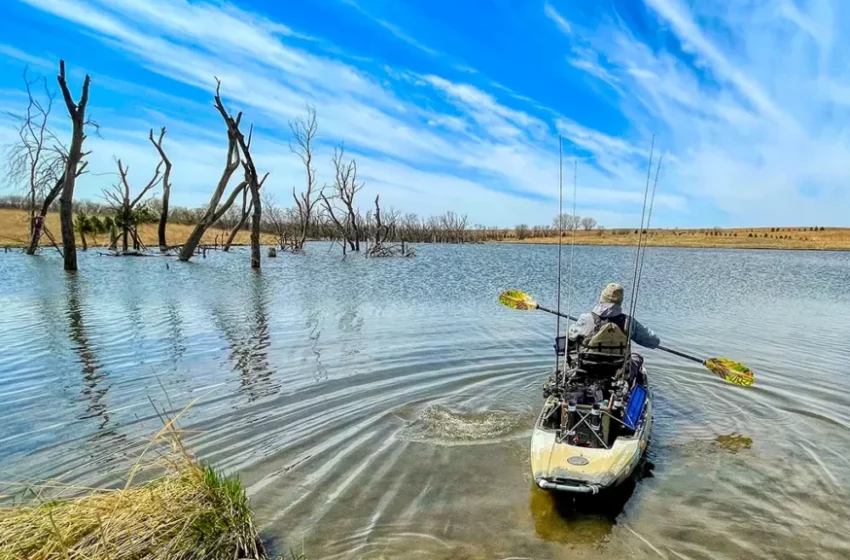Kayak fishing provides the thrills and shivers you need for a fantastic holiday. But to capture large fish, you must make sure that your boat and, of course, you are in good condition. Unless you want to end up fishing in dangerous waters!
Does a Perfect Kayak exist, though?
Which kayak is best for fishing might be the first thought that comes to mind. Truth be told, there is no such thing as the “best” or “ideal” kayak. Even while ocean kayaks and Hobie kayaks are well-liked, no kayak can guarantee comfort for everyone. It’s comparable to buying shoes. Does everyone have the ideal pair of shoes? No. The same holds for kayaks.
When making a decision, you often take into account your fishing plan, the type of water you want to explore, the number of people traveling with you, weight, and other aspects. To determine the kayak’s genuine endurance, it’s a good idea to test it in choppy water. Don’t worry too much about stability, I say! You undoubtedly want to maintain your balance, but remember—this is not a ship! You must develop stability when Fishing Kayak With Pedals. If you can master the technique of paddling, which takes practice, even an unstable kayak will look stable to you.
Get a longer kayak as a tip. It moves through the water with ease. Less effort is required to paddle it.
Can You Use A Kayak To Catch Big Fish?
Yes! Kayak fishing is an exciting sport that gets more exciting the bigger the fish are! Make sure your drags are properly placed to prevent being dragged off the kayak by the big fish. But what if you slip? If you have a cutaway tool fastened to your vest and are wearing your flotation device, that is acceptable. If not, dial 911!
Keep your head in the middle of your kayak at all times so it can float beneath you. Your body always moves in sync with your head. Don’t over-peep the waters, then.
Kayak Fishing Equipment
Kayak fishing is an adventurous sport, but you must exercise caution and carry all necessary supplies. Your top focus should be your safety. In addition to the usual fishing equipment, you must have all the appropriate safety and fishing equipment. In case you fall off the kayak—which is likely to happen—you must also know how to self-rescue.
Kayaks for fishing are typically used in ponds, freshwater lakes, and rivers. For a thrill, though, some people are willing to fish in saltwater or even the ocean. If you have the right tools and know how to fish in a kayak, the body of water you choose to fish in won’t matter.
One of the sports with the quickest rate of growth in the paddle sports and outdoor sporting markets is Fishing Kayak With Pedals. This rapid rise brought with it opportunity. New ideas and technologies are starting to benefit kayak fishing as it develops as a sport. Despite this, kayak anglers and sportsmen are hungry for new gear, accessories, and paddles to keep one step ahead of their rivals.
It was a comedy about fishing on the water. I pondered distantly. Jim was waving a seven-foot kayak paddle around in the saltwater flats. He was chasing a redfish through the mangroves while attempting to hold onto an eight-foot fishing pole. He needs another hand to wrangle that kayak paddle while holding his rod, I thought to myself.
Fish or paddle? Every kayak fisherman has encountered the challenge of paddling their kayak while holding their fishing rod. How can you paddle your kayak covertly while using one hand to hold onto an eight-foot fishing rod? Whatever you do, you need two hands to lift that seven-foot kayak paddle. To do the other, something needs to be put down.
At that time, the idea for a kayak fishing hand paddle was created. They are a straightforward answer to a tricky issue found during kayak fishing. Who would have imagined?
It has been observed that intrepid kayak fishermen and sportsmen may be seen stealthily piloting their kayaks while pursuing fish using tools like ping pong paddles, Kadima paddles, and modified racquets.
Final Thought
Do not forget to bring plenty of water with you when kayaking or fishing. It’s common to become distracted while pursuing your big capture. You might not even be aware that your body is thirsty for water in the thick of the excitement. So be careful to drink plenty of water to avoid being too tired to make it to the dock.










